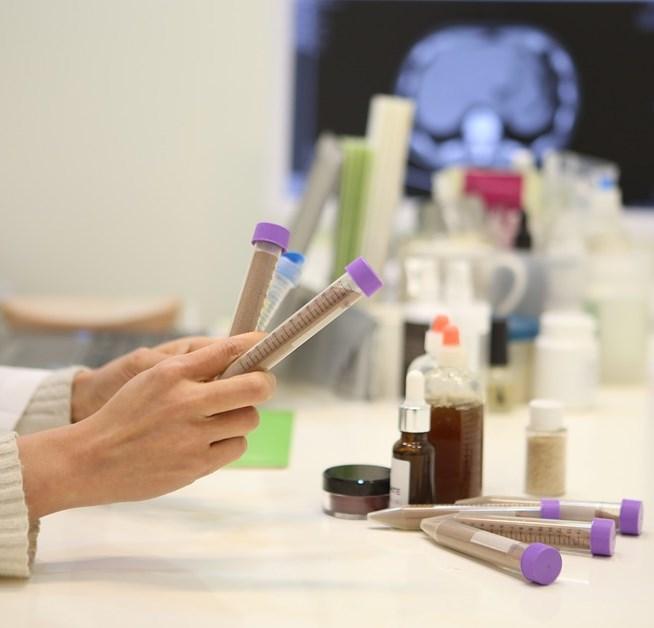
2 minute read
Histopathology
The Histopathology training at Brighton and Sussex University Hospitals NHS Trust (BSUH) is based in the Cellular Pathology service, which is managed as one department across two sites.
Histopathology and cytopathology laboratory facilities are located primarily at the Royal Sussex County Hospital (RSCH). Frozen section facilities are located at both the RSCH, as well as the Princess Royal Hospital (PRH). At both sites, the department is in purpose built accommodation and located close to the other pathology disciplines and units.
Advertisement
The department supports a wide range of clinical specialties. These include Breast Screening and Surgery, Cardiology, Chest Medicine, Dermatology, Head and Neck Surgery, Gynaecology , Medical and Surgical Gastroenterology,
HIV medicine, Orthopaedic Surgery, Urology, Ophthalmology, Oncology, Thyroid and Renal Medicine.
The Trust is a Calman Cancer Centre, and primary and review work from the Sussex Cancer Centre represents a significant proportion of the caseload. The annual workload includes about 6,600 Non-Gynaecological Cytology Requests and 34,000 Histopathology requests. The team comprises thirteen consultant Histopathologists, two clinical specialist registrars and six specialist registrars ranging from ST1 to ST6.
The Laboratory
The pathology laboratories at BSUH provide comprehensive and responsive pathology services for BSUH hospitals, GPs and other community-based primary care services.
HISTOPATHOLOGY

Teaching
Trainees are encouraged to participate in regular governance and educational meetings, the multidisciplinary team meetings and audit meetings.
In the weekly ‘Black box meetings’ staff discuss up to ten particularly interesting or challenging cases. Training activities are balanced to enhance clinical, macroscopic assessment and microscopic interpretation with regular one on one microscopic reporting and teaching with consultants.
Multidisciplinary team meetings are held regularly with the main clinical specialties. The department supports 11 regular MDT meetings each week, together with five additional monthly meetings. These are principally supported by the lead pathologist for each specialty, with cover provided internally as required.
Most MDT meetings are held in the Sussex Cancer Centre, in a dedicated meeting room with AV equipment, microscope projection and teleconferencing facilities. Trainees will participate in cutup, microscopy including both histology and cytopathology. The option to perform post mortems is also available, although these are not on site at the Hospital. Audit work is an ongoing process within the department and involvement with such work is expected as part of the training programme
WHAT OUR TRAINEES SAY Dr Ceri Morgan
I graduated from St Georges Medical school in 2012 and following foundation years on the South Coast, I completed Core Medical training with a view to doing Haematology. I developed an interest in Haematopathology while I was on Haematology rotation and then took a slight detour and applied for Histopathology training at Brighton in 2016.
Histopathology training at Brighton is diverse as nearly all surgical disciplines are catered for here. As a trainee we need to have a working knowledge of surgical techniques for specimen cut up, as well as cellular morphology and more recently molecular diagnostics, again a service provided here at Brighton.
Full participation by trainees at multidisciplinary meetings here is encouraged, something which at first can be daunting, but ultimately fosters close ties with our Surgical, Radiological and Oncological colleagues.
Post mortem training at Brighton is great with ample opportunity given to trainees to participate in the rota. On average trainees can do at least one post mortem under senior supervision per week.










